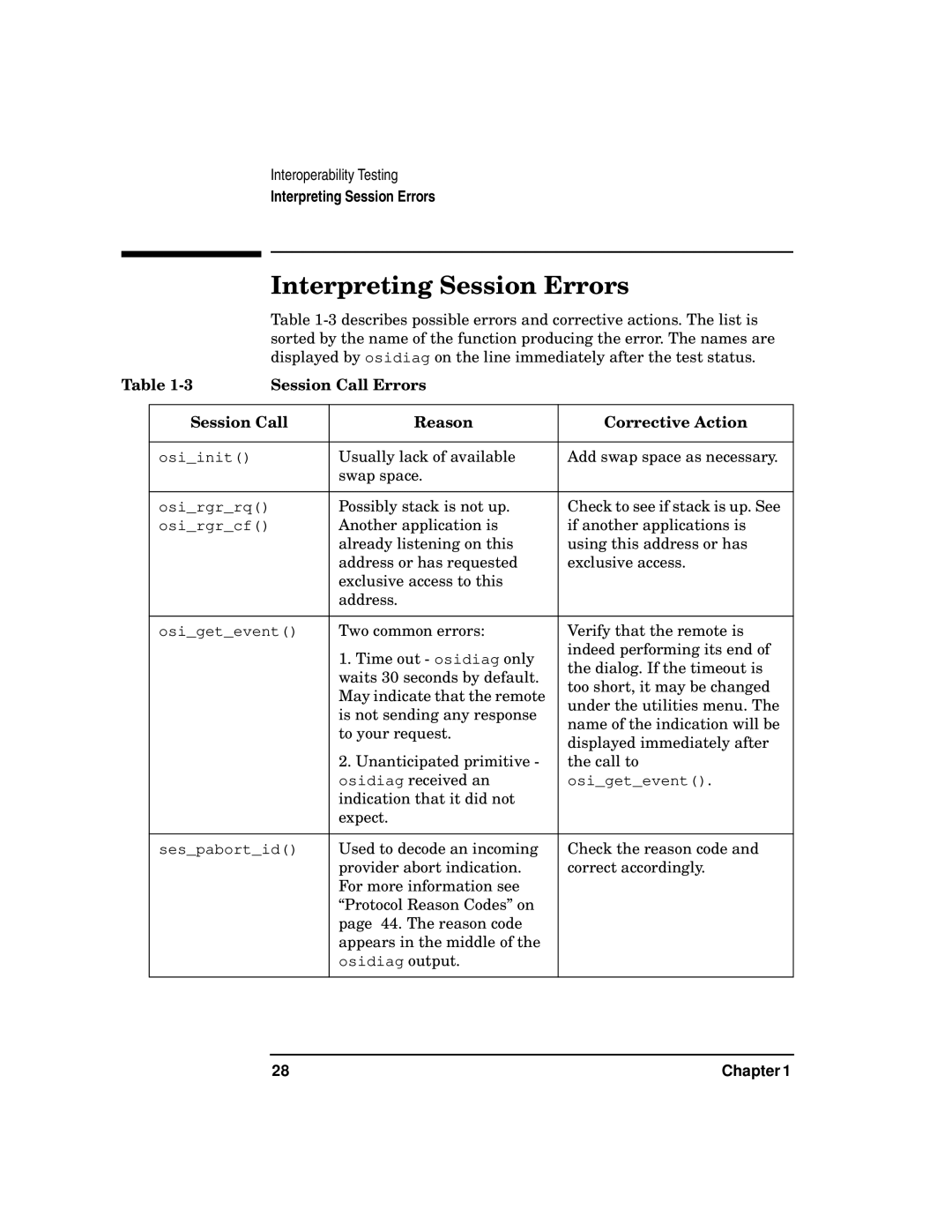
Interoperability Testing
Interpreting Session Errors
Interpreting Session Errors
Table
Table | Session Call Errors |
| ||
|
|
|
| |
| Session Call | Reason | Corrective Action | |
|
|
|
|
|
| osi_init() |
| Usually lack of available | Add swap space as necessary. |
|
|
| swap space. |
|
|
|
|
|
|
| osi_rgr_rq() |
| Possibly stack is not up. | Check to see if stack is up. See |
| osi_rgr_cf() |
| Another application is | if another applications is |
|
|
| already listening on this | using this address or has |
|
|
| address or has requested | exclusive access. |
|
|
| exclusive access to this |
|
|
|
| address. |
|
|
|
|
| |
| osi_get_event() | Two common errors: | Verify that the remote is | |
|
|
| 1. Time out - osidiag only | indeed performing its end of |
|
|
| the dialog. If the timeout is | |
|
|
| waits 30 seconds by default. | |
|
|
| too short, it may be changed | |
|
|
| May indicate that the remote | |
|
|
| under the utilities menu. The | |
|
|
| is not sending any response | |
|
|
| name of the indication will be | |
|
|
| to your request. | |
|
|
| displayed immediately after | |
|
|
|
| |
|
|
| 2. Unanticipated primitive - | the call to |
|
|
| osidiag received an | osi_get_event(). |
|
|
| indication that it did not |
|
|
|
| expect. |
|
|
|
|
| |
| ses_pabort_id() | Used to decode an incoming | Check the reason code and | |
|
|
| provider abort indication. | correct accordingly. |
|
|
| For more information see |
|
|
|
| “Protocol Reason Codes” on |
|
|
|
| page 44. The reason code |
|
|
|
| appears in the middle of the |
|
|
|
| osidiag output. |
|
|
|
|
|
|
28 | Chapter 1 |
